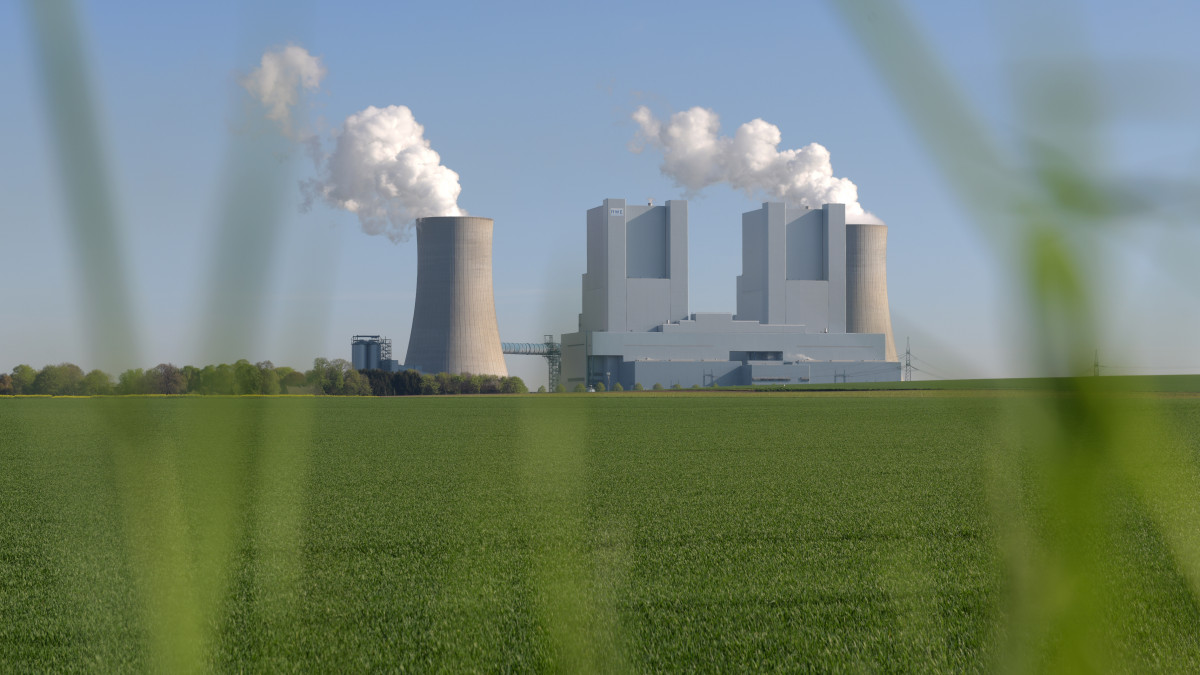Germany irons out last coal exit law hurdles with conversion options for younger plants
The German government coalition has got the last roadblocks out of the way in finalising the country's long-awaited coal exit law, but critics say the planned legislation falls short of delivering an adequate and cost efficient phase-out plan for the fossi fuel.
According to the government parties' energy spokesmen, Joachim Pfeiffer of Chancellor Angela Merkel's conservative CDU/CSU alliance and his Social Democrat (SPD) colleague Bernd Westphal, "the way for a reliable, socially acceptable and legally sound coal exit has been cleared" with the law that is expected to be passed by parliament on Friday. The coalition partners ironed out remaining dissent about compensation payments, plant conversion and special guidelines for operators of the country's newest hard coal plants before the last installation is shut down by 2038 at the very latest. The agreement, seen by Clean Energy Wire, also greenlights billions of euros for economic support programmes in mining regions.
In the week before, the coalition already decided on key aspects regarding the phase-out of lignite plants. Experts criticised the German government's draft coal exit law for deviating from the compromise found by the coal commission last year, arguing that it would never have gained widespread acceptance in its current form.
The only remaining opposition to the government’s coal phase-out deal from within the power sector is coming from energy company EnBW. They have said that they wouldn’t be able to sign the contract that manifests the shut-down timeframe and compensation payments as long as there isn’t a provision that safeguards them from being sued by their lignite coal supplier Mibrag. EnBW owns one lignite power station unit in the central German district (Lippendorf S) which is scheduled for shut-down in 2035. But since the phase-out contract can only be finalised in autumn after the state-aid procedure, it seems likely that an understanding will be reached by then, Handelsblatt reporter Klaus Stratmann writes.
Support for converting coal plants to biomass, hydrogen or natural gas use
Under the new agreement, up to 40 billion euros are earmarked for support programmes in coal regions. Part of this money is supposed to fund the conversion of relatively new plants to produce power and heat under combined-heat-and-power (CHP) schemes with biomass, hydrogen or natural gas. "Especially younger plants are given a perspective for our future energy supply," the parties' energy politicians said. The parties also decided to increase compensation payments and conversion support to 390 euros per kilowatt for plants that are no older than 25 years and convert before 2024. Payments gradually decrease for older plants or plants that are converted at a later date.
Hard coal plant operators are to be compensated via an auction scheme. In these auctions, coal plant operators can tender capacity volumes to be taken offline, and how much money they demand for the closure. They then receive a “hard coal premium” for the capacity they take offline. In the final draft of the coal exit law, the deadline until when plant operators can apply for compensation payments with the lowest bid in tenders if they shut down their installations has been extended by one year to 2027. A review mechanism that considers market conditions will provide for possible "legal amendments" to that rule for plants that went into operation after 2010. The German Association of Energy and Water Industries (BDEW), which has fought for better retirement conditions for hard coal plants and higher subsidies to converted CHP units, said that both had been incorporated in the latest changes to their satisfaction.
Coal phase-out could have been 1.9 billion euros cheaper - think tank
The government last week agreed with lignite plant operators to pay out a total of 4.35 billion euros in fixed compensation. At the same time, the economy ministry has defended the decision to also keep the controversial new hard coal plant Datteln 4 running, arguing that that the modern facility, which went into operation at the end of May this year, was replacing older ones and would therefore not lead to higher emissions.
In the light of the highly volatile conditions on the electricity and CO2 markets, think tank Öko-Institut describes the “non-transparent flat-rate compensation” granted to the lignite companies to be “inappropriate” and “misguided”. If a different model of compensation, based on market developments, had been chosen, the phase-out could cost the state around 1.5-2 billion euros less, the researchers write.
Building renewables cheaper than keeping existing coal plants by 2022, analysis finds
According to a study by the Institute of Energy Economics at the University of Cologne (EWI), Germany's planned coal exit could run into trouble if the current difficulties in onshore wind power expansion are not overcome. If protests against new installations and regulatory hurdles persist, 2030 expansion levels of Germany's most important renewable power source could turn out to be much lower than anticipated by the government's coal exit commission, EWI said. Assuming that the onshore wind capacity that year stands at 60 gigawatts (GW), 34 GW less than in the commission's scenario, the need for natural gas plants and power imports could increase enough to thwart sectoral emission reduction goals, the researchers found.
NGOs and researchers said changing market conditions mean that the proposed coal exit law effectively prolongs the use of coal in Germany beyond what would otherwise be economically viable thanks to compensation payments, as a new analysis by British think tank Carbon Tracker showed the increasing cost efficiency gains of renewables are quickly undermining the economic prospects of coal plants. The think thank found that most of the world's existing coal fleet will be unable to compete even with newly built renewable power installations no later than 2025 and nearly 40 percent had reached that point. "Replacing the entire global coal fleet with clean energy can be done at a net savings to society as early as 2022," Carbon Tracker said.



